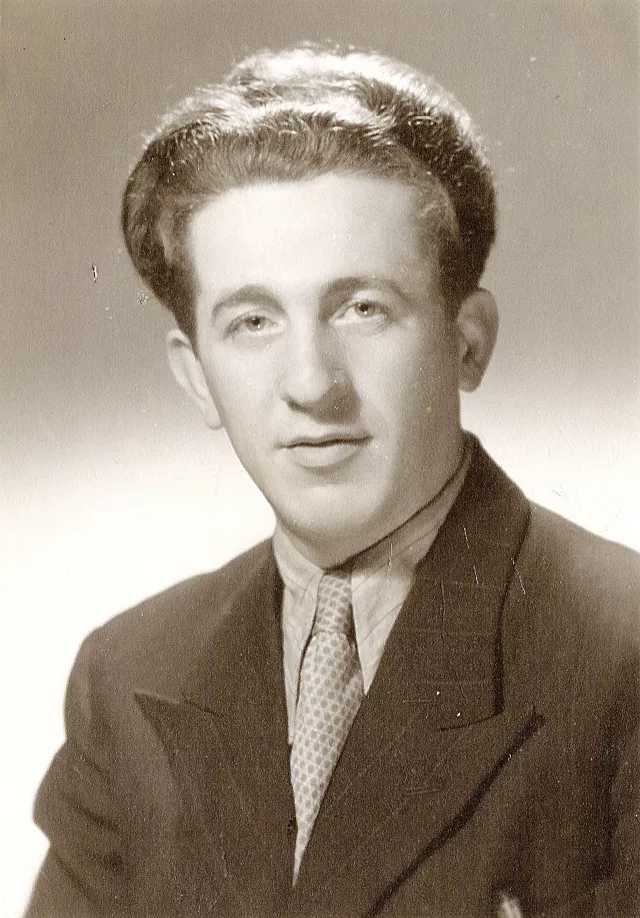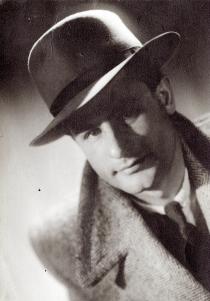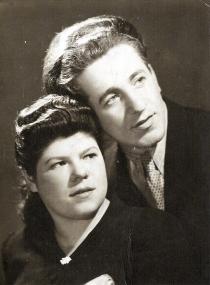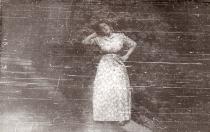This is me, photographed shortly after the war. The picture was taken in Lodz, in Mirecki’s studio. He was the most famous photographer in Lodz. Everybody knew him at that time.
After the war I first went to Lwow, then from Lublin to Warsaw and Lodz. That worked out well. I came back to the same place, with a gun in my hand. My dream was to show up like Joseph in Egypt, who came back although everyone thought he had died. I didn't want to go straight to Lodz. I could have made it to Lodz on 19th January 1945 with the Red Army, because I was in uniform. But I didn't want to; I instinctively felt that no one was alive. I spent some months in Lublin and I came here. I thought I'd meet someone. I was disappointed. No brothers, no friends, no father, no mother, no sister, no cousins. No one was left. They all died. I searched, but I wasn't successful. I even visited the Lodz Ghetto. There on Lagiewnicka Street, in Nacha and Monka Wajntraubs' apartment, I found some letters, photos, documents and that was all. I only managed to find a few of my acquaintances.
I met my future wife's brother in Lublin. His name was Mietek Kalisz. I spent some time in Lublin before I came to Lodz. I lent him some money, because I had money. He was a shirker, he didn't want to work, a happy-go-lucky fellow. He couldn't write. When someone confided in him, he would give him everything he had. He was never rolling in dough. He later went to Lodz. I met him at the Jewish Committee in Lodz. He said: 'Why did you spend so much time in Lublin?' He asked where I lived. And when I came back I first lived at the Red Cross, on Sienkiewicza Street, and then I moved in with one Jew. He lived alone, on 72 Wschodnia. Borower or Badower was his name, I don't remember exactly. Mietek finally invited me to his place: 'Come, I live on Prochnika Street.' I went and that's how I met my future wife.








































